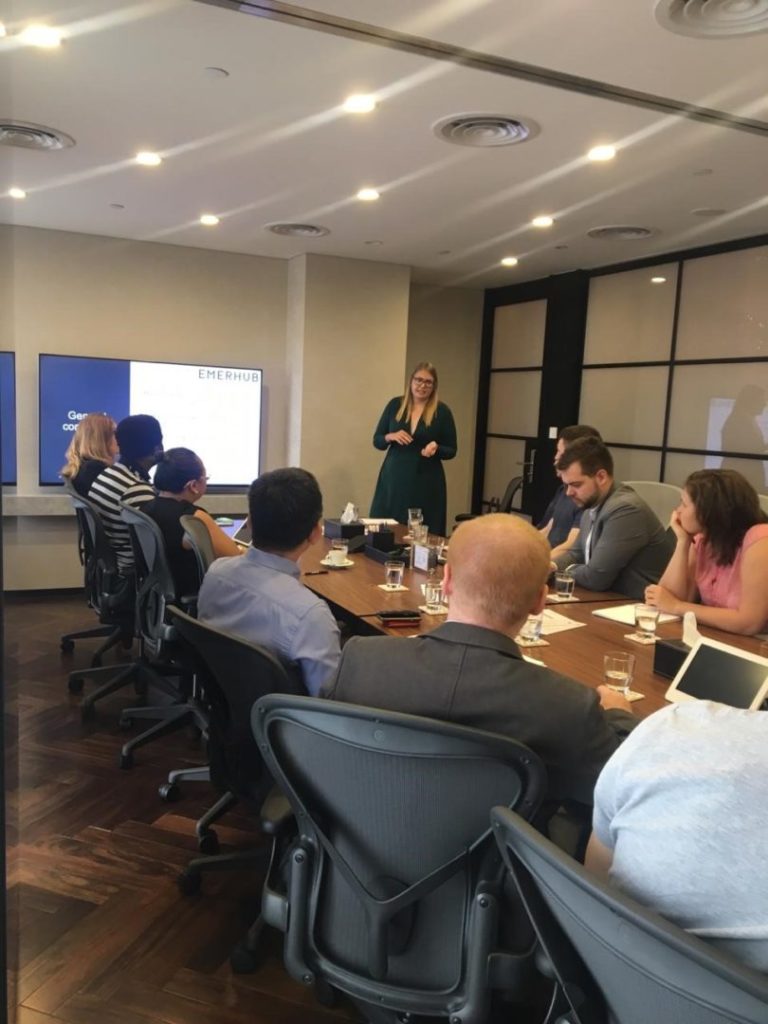CEEC 11th Share & Learn took place on March 14, 2019, with the topics related to company/ product registration and protection: How to be sound and safe on the Vietnamese market?
At the beginning, Mrs. Magdalena Krakowiak, CEEC Vice-Chairwoman warmly welcomed guests. She thanked to the participants and partners for helping to make this event happened. Then she invited Consul General of Hungary, Dr. Tibor Baloghdi to give an opening remarks.
Mr. Baloghdi emphasized the uniqueness of CEEC and encouraged to use its services. Consul General invited CEEC to use consulate properties for CEEC events/ business delegations/ meeting.
Afterwards, Ms. Kadri Lahi, the Country Manager of Emerhub Vietnam, started a very practical presentation focused on company registration in Vietnam. Key questions which each company should ask before registering are:
- When should you think about registering your business in Vietnam?
- What are options for expats to start a small/medium sized business?
- What are the legal requirements (location, minimum capital, management structure)?
- What should you expect when running your own business (hiring, tax compliance, and reporting)?
There are three main organizational structures utilized by foreign companies to operate in Vietnam:
- Representative Office: limited scope (e.g. no revenue allowed)
- Branch: providing services of the parent company, which needs to be registered overseas for at least 5 years
- Limited liability company (LLC): limited liability to the capital contributed, founders can be individuals or company
LLC is the best option as the risk is limited and the company can be a one-person company.
We could also learn that there are some alternatives, depending on the nature of the business, like distributors, IOR, EOR or outsourcing to local company. Moreover, we could find out what business lines can be 100% foreign owned and what kind of business require a joint venture with Vietnamese partner.
Later, Kadri focused on setting up the trading company and differences in timeline and requirements between B2B and B2C. While the B2B does not need a trading licence, B2C requires that, which prolongs the registration procedure for 6-12 weeks.
Following Kadri’s presentation, Ms. Marta Bettinazzi, Intellectual Property Business Advisor at the South-East Asia IPR SME Helpdesk, gave a general overview of intellectual property rights (IPR) with the indication of how important for European SMEs is to protect them. As the company name/brand/ reputation are best assets, they should be protected from competitors.
We could hear that different IP requires different timeline and cost. While the copyright registration takes only 15 days and is relatively cheap, the patent or industry design could take even 20 months and cost more. According to our expert, trade mark is the best way to protect a brand.
As a final part, Ms. Marta gave us some insights on how to enforce our IP rights. Apart from administrative actions, there are criminal prosecution, alternative dispute resolution, civil action and custom registration. However, we need to remember that enforcement is not possible without registration.
Marta’s presentation ended with the message “play smart” and the tips: know your rights, the law and how to protect your rights.
The S&L event was concluded with many questions from the audience and an interesting discussion.



